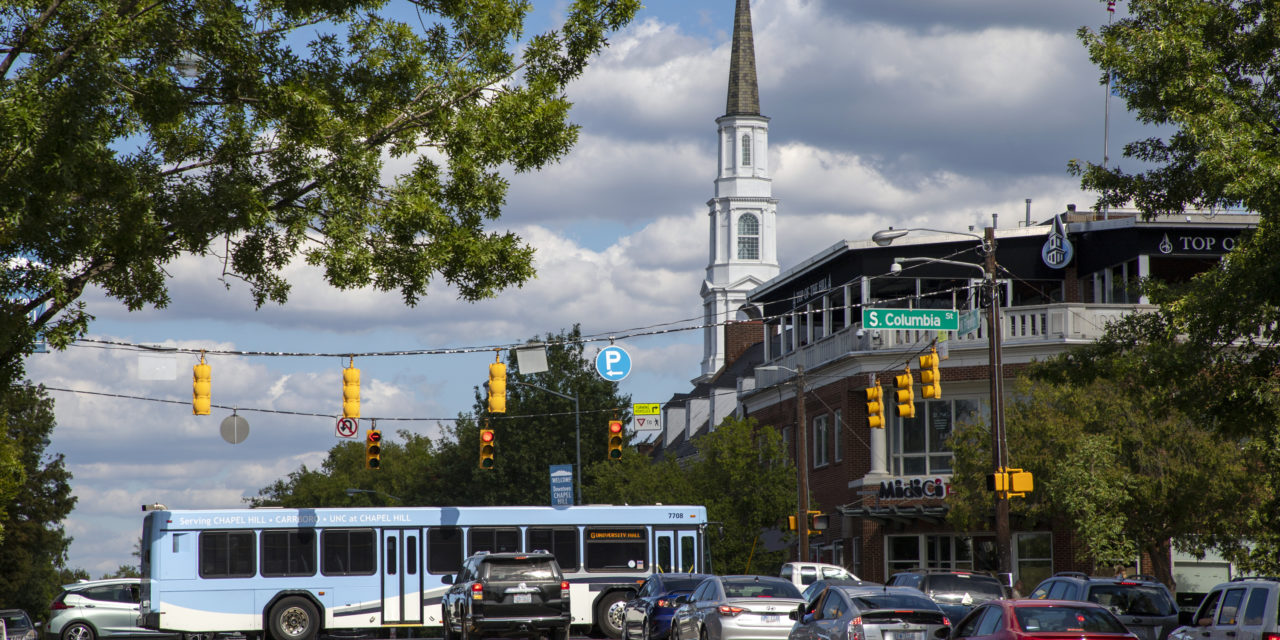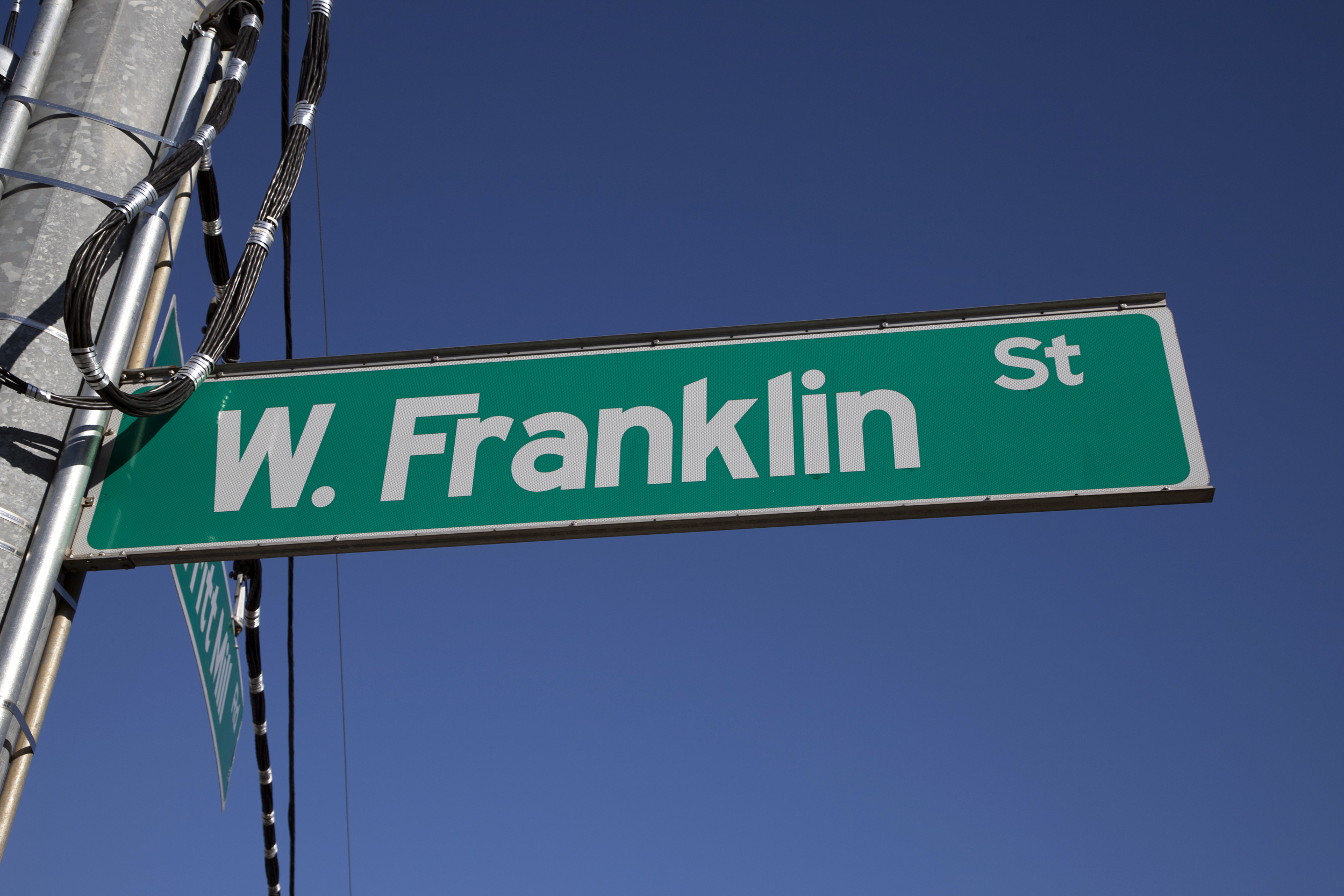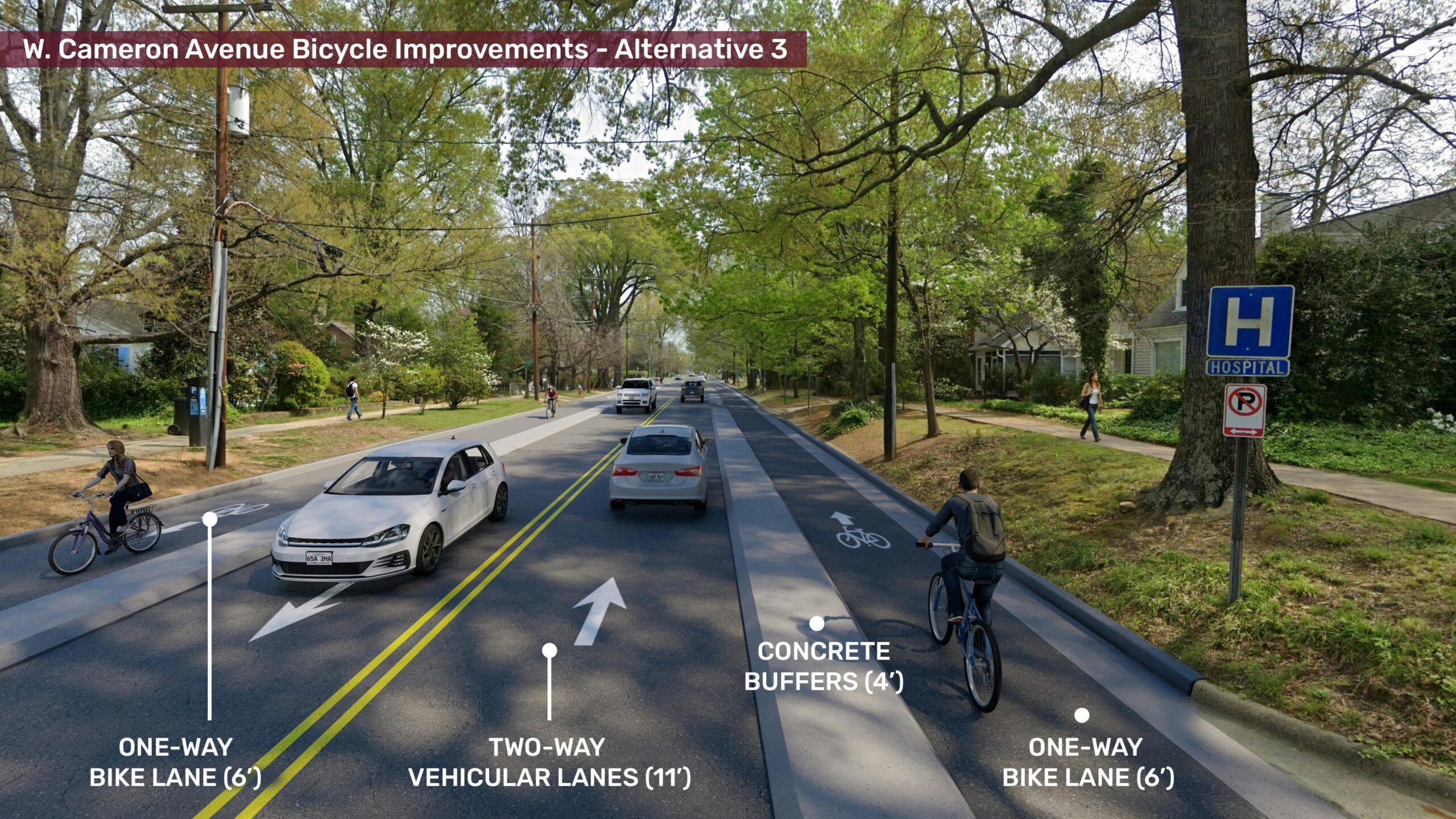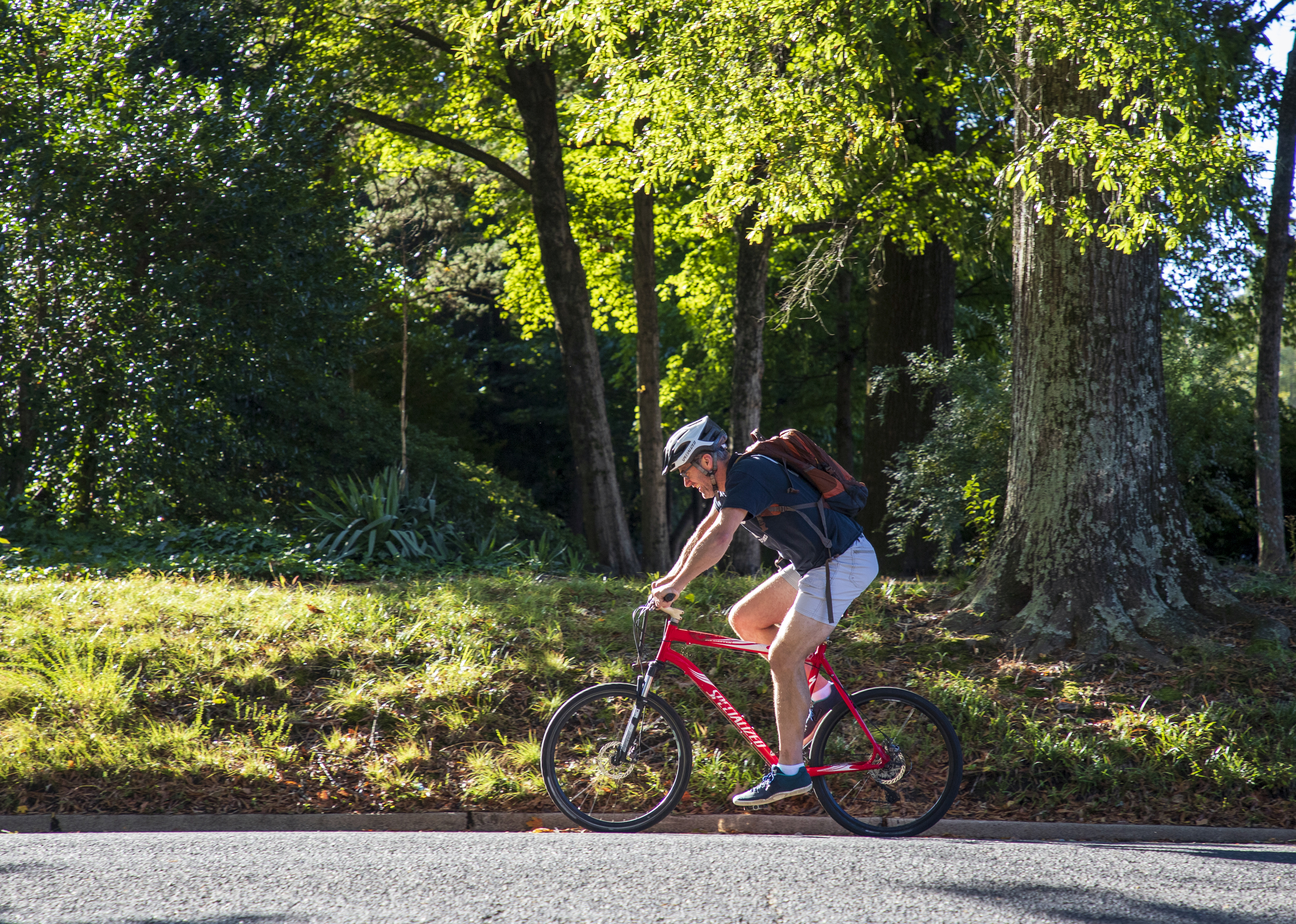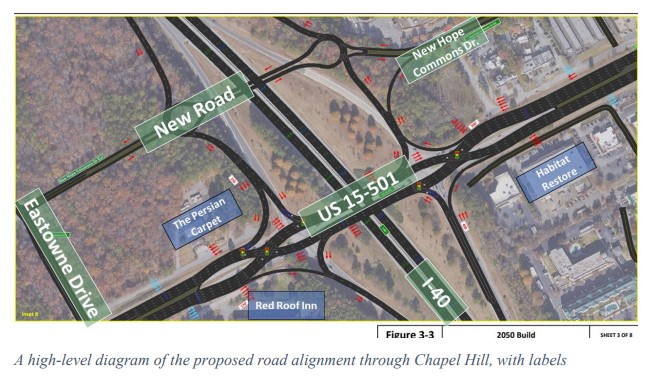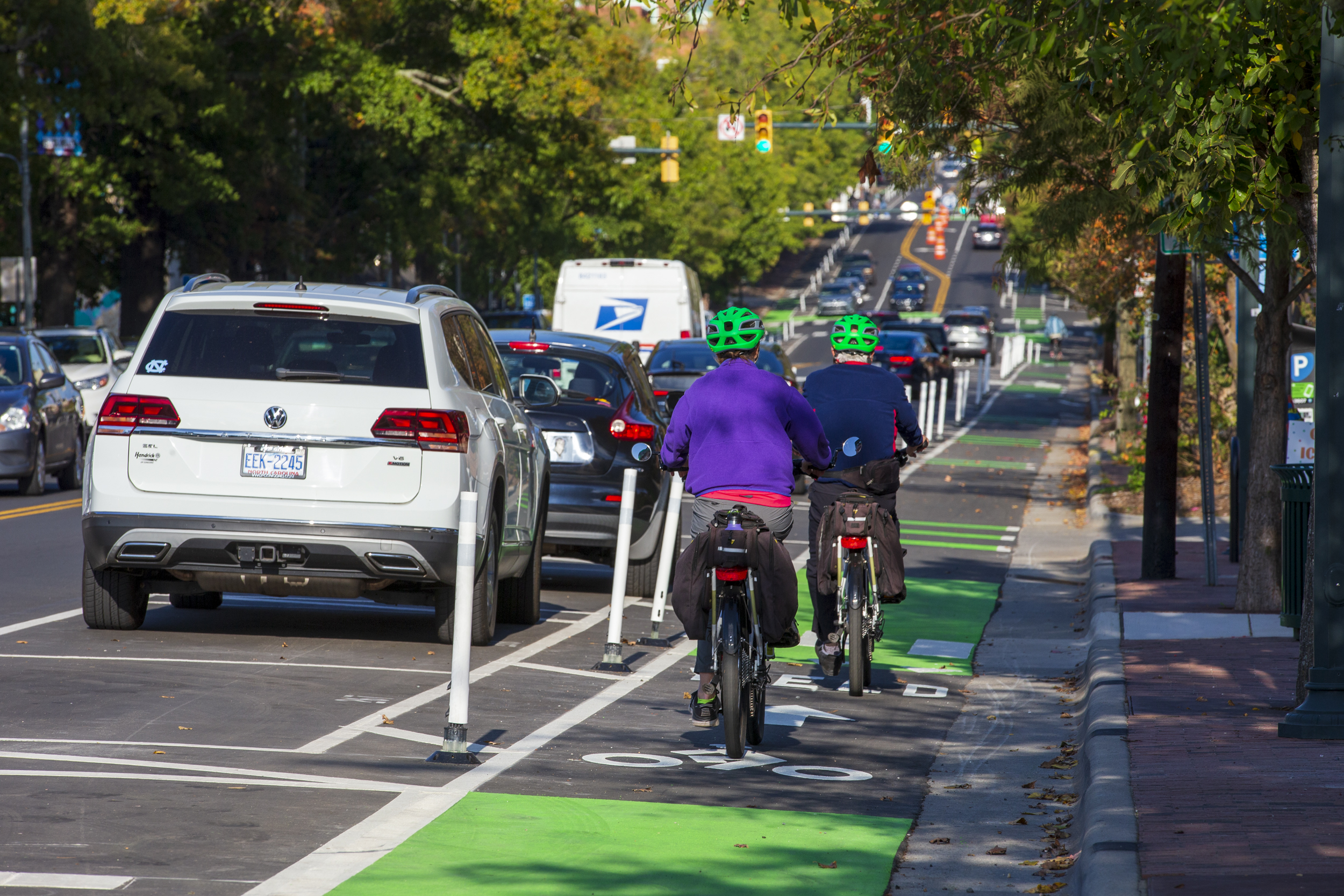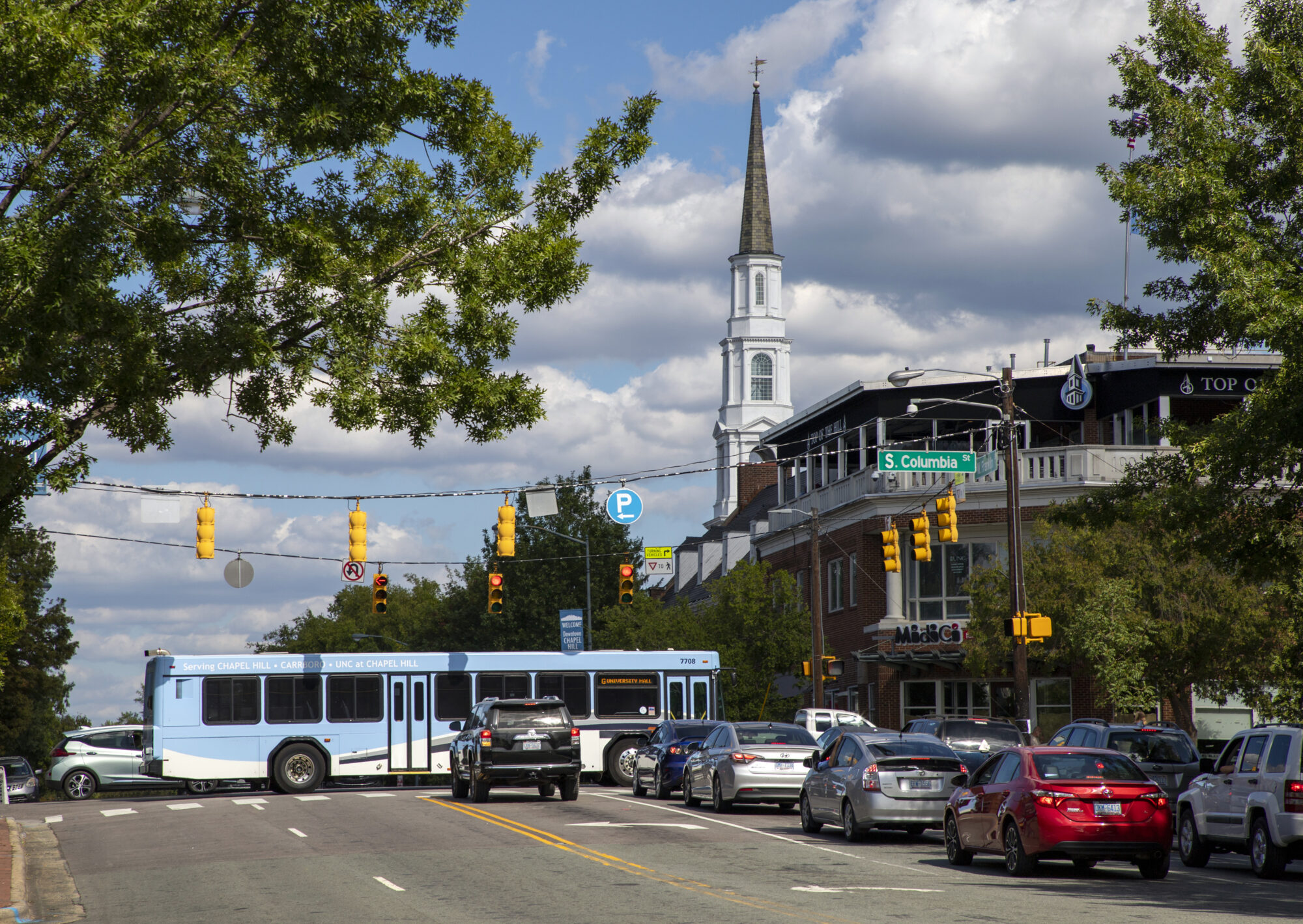The North Carolina Department of Transportation recently finished its resurfacing of Franklin Street in downtown Chapel Hill. But will it be the last time that responsibility falls to the state?
The Town of Chapel Hill installed new bicycle lanes along the road, a long-time project that required significant collaboration with the state department. As the local government hopes to continue re-envisioning its downtown, its staff is exploring how feasible it’d be for Chapel Hill to take over control of Franklin Street – with those conversations continuing on Wednesday night during a town council meeting.
Discussions around Franklin Street changing control began after a petition was submitted by the Chapel Hill Downtown Partnership last fall. The change would likely greatly benefit the town in its planning efforts, as it seeks to continue building out its bike and pedestrian infrastructure while maintaining space for vehicles and businesses. Although the local government maintains the sidewalks and curbs, the street is currently owned and maintained by the state Department of Transportation. That means any changes to the road itself, ranging from adding bus stops to painting crosswalks, must be approved by North Carolina’s government – a process that often takes longer than if approved by the town council.
If control of Franklin Street is ceded to Chapel Hill, the town would take over basic operations like the regular resurfacing of the road, snow removal, control of bicycle lane designs and stormwater infrastructure. On Wednesday, town staff said, Chapel Hill would also then be able to more drastically reimagine how Franklin Street is used.
Transportation Planning Manager Bergen Watterson described the main sticking point as the two governments having different philosophies for the famous street.
“We consider this our downtown,” she said. “This is a destination, it’s a vibrant, people-centered place. And [for] DOT, it’s a road, it’s a through-way, it’s a way to get from one [place] to another.”
As a result, town staff shared a presentation of five options, ranging in both the changes and cost of potential projects. The suggestions indicated that if Chapel Hill wants any control over introducing traffic calming and additional bike-pedestrian safety measures, NCDOT would likely need to transfer the maintenance. Once that happens, the town would likely incur around $2.7 million of one-time upgrades, the most expensive being stormwater system changes that staff said the state is not prioritizing. From there, the town would also take on the $191,000 annual maintenance costs for upkeep of the road itself.
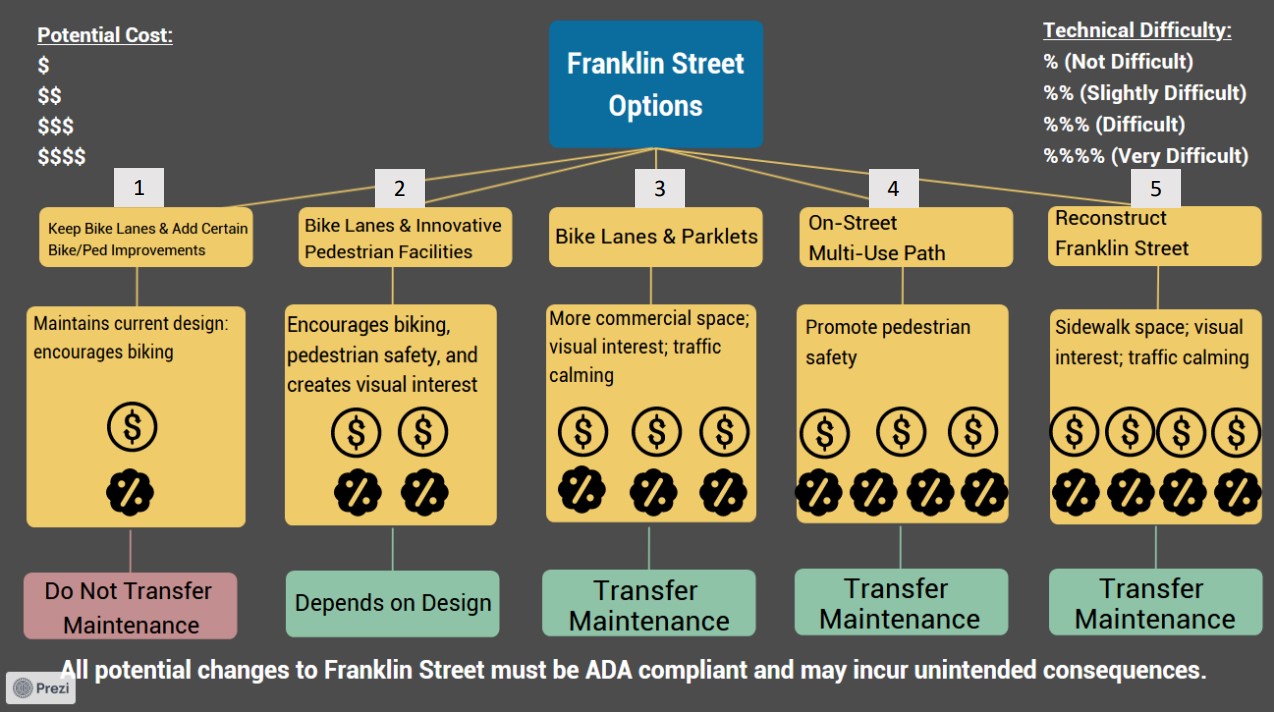
A screen-grab of the staff presentation shared with the Chapel Hill Town Council on October 12, 2022. The display is discussion options and costs for if the town were to seek control of Franklin Street from the state Department of Transportation. (Photo via the Town of Chapel Hill.)
Council member Amy Ryan described the task at hand from her perspective as two elements to determine. The first is how to create a vibrant streetscape for downtown visitors, while the other is determining whether that space is heavily focused on foot traffic compared to vehicle traffic. She said to ultimately achieve both of those, Chapel Hill would likely need to rely on the more expensive of the options presented by staff.
Council member Jessica Anderson agreed with Ryan’s points, and was one of several officials to express hesitancy to recommend taking over control of the entire road in the immediate future. She said that grappling with the ultimate vision for downtown should be done first.
“I think figuring that out, and figuring out how Franklin Street can be the place we really want it to be, is an exciting opportunity,” said Anderson. “But I think the ‘taking over the street or not’ [choice] is the decision we make later when we decide whether we need to in order to get to that place we really, really want.”
Council member Camille Berry agreed with that assessment, saying conversations with the town and NCDOT indicate that eventually receiving ownership of the road would likely not take much convincing to the state. Because of that, she said there should be more work done on the town’s side to develop specific goals and projects.
“We can make the offer any time and they’d jump at it,” Berry said of NCDOT. “And I’m glad that others see we don’t need to jump yet. Because we don’t have a plan, and in fact, we don’t have a plan for the plan. And I think that’s what we need.”
Chapel Hill Town Council members indicated that the Complete Communities Strategy, which is being developed by world-class urban planners to guide the town in its approaches to development, should help. Council Member Michael Parker said with those intentions in mind, the elected body may be better informed to ask staff how to examine transportation, pedestrian access and effects on business when considering changes to Franklin Street’s layout.
“It’s a lot to do with the intersection of mobility with design,” said Parker, “looking – at a minimum – [at] the three major east-west streets, plus all the north-south collateral streets and doing good modeling. [That way we know] if we do anything that reduces flow on Franklin anywhere, what will be the [traffic] impacts elsewhere and can we sustain it.”
Part of the presentation was early data from community members about their own visions of Franklin Street. The town is running a survey gauging interest in further change, safety measures, concerns and more. You can find the town’s web page for the survey, and future of Franklin Street, here.
Chapelboro.com does not charge subscription fees, and you can directly support our efforts in local journalism here. Want more of what you see on Chapelboro? Let us bring free local news and community information to you by signing up for our biweekly newsletter.

